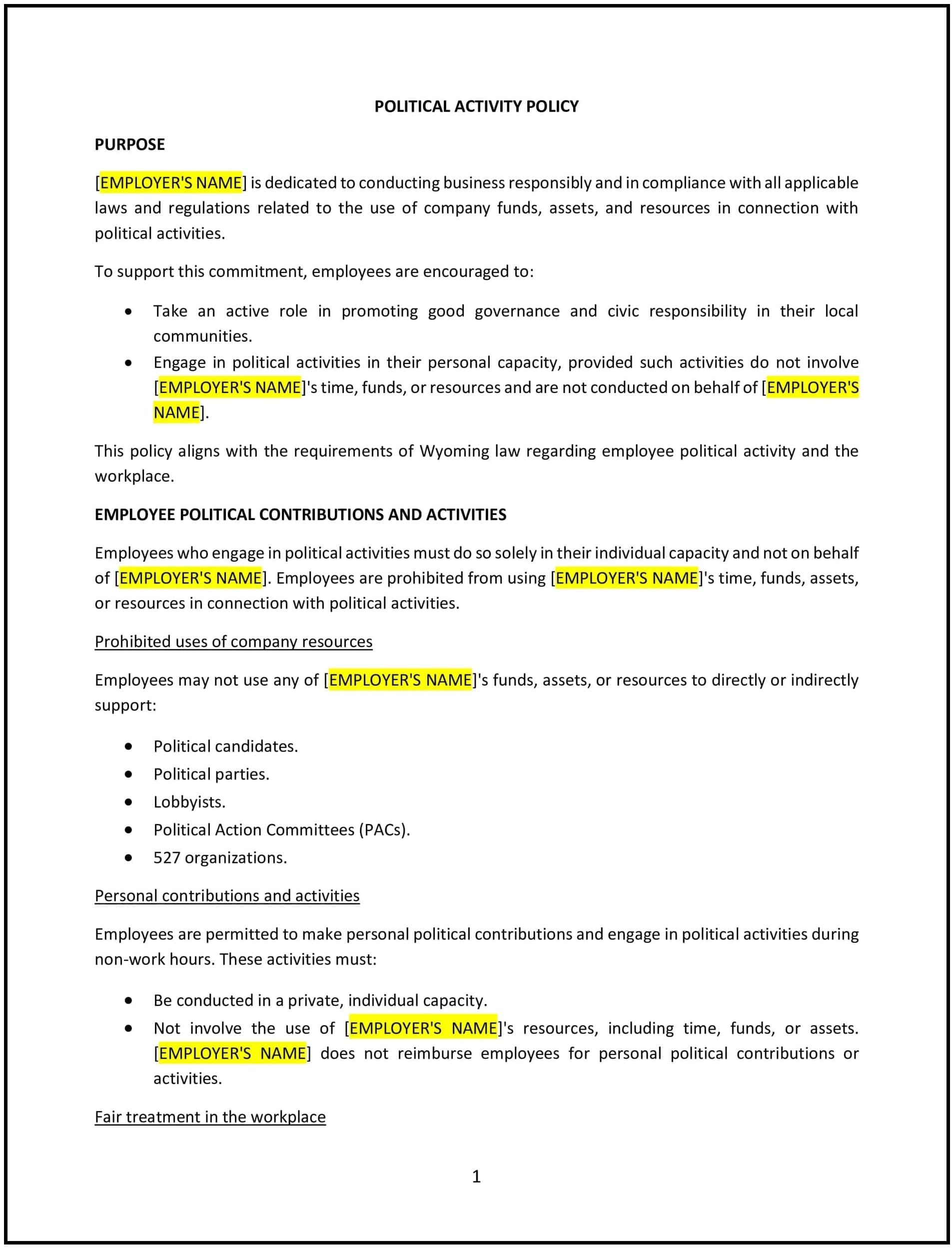Got contracts to review? While you're here for policies, let Cobrief make contract review effortless—start your free review now.

Customize this template for free
Political activity policy (Wyoming)
In Wyoming, a political activity policy provides guidelines for employee involvement in political activities, ensuring that personal political interests do not interfere with workplace responsibilities or create conflicts of interest. This policy helps businesses maintain neutrality and focus on their organizational objectives.
This policy outlines expectations for political activity during work hours, the use of company resources, and the separation of personal political views from professional roles.
How to use this political activity policy (Wyoming)
- Define permissible activities: Specify acceptable forms of political expression in the workplace, such as private discussions during breaks, while prohibiting disruptions to work operations.
- Prohibit use of company resources: Clearly state that company resources, such as email, office supplies, or meeting spaces, cannot be used for political campaigning or advocacy.
- Address time off for political participation: Outline procedures for requesting leave to participate in political activities, such as voting or running for office.
- Maintain neutrality: Encourage employees to separate personal political views from their professional responsibilities and avoid representing the company in political matters.
- Support compliance: Align the policy with Wyoming labor laws and federal regulations, such as the Hatch Act for certain organizations.
Benefits of using a political activity policy (Wyoming)
A political activity policy provides several advantages for Wyoming businesses:
- Maintains workplace harmony: Reduces potential conflicts among employees with differing political views.
- Promotes compliance: Aligns with legal standards, minimizing the risk of disputes or regulatory violations.
- Protects company reputation: Prevents unauthorized political representation of the organization.
- Encourages professionalism: Promotes a focused and respectful work environment.
- Adapts to local needs: Reflects Wyoming’s community-oriented values and diverse workforce.
Tips for using a political activity policy (Wyoming)
- Communicate expectations: Share the policy with employees during onboarding and ensure it is readily accessible.
- Train supervisors: Provide training on how to handle political activity in the workplace while respecting employee rights.
- Encourage transparency: Create an open environment where employees feel comfortable discussing concerns related to political activity.
- Review regularly: Update the policy to reflect changes in laws, workplace dynamics, or political climates.
- Foster inclusivity: Promote a culture of respect and understanding for diverse political perspectives.